Über tomoni
tomoni mental health ist ein gemeinnütziges Unternehmen aus Frankfurt am Main. Mit einem 20-köpfigen Team schaffen wir wissenschaftlich fundierte Angebote zur Früherkennung psychischer Erkrankungen bei jungen Menschen. Unser Leitsatz: Es braucht das ganze Dorf.
Unsere Arbeit wird unterstützt durch den wissenschaftlichen und den pädagogischen Beirat sowie die game.changer, unser Netzwerk von engagierten und teilweise selbst betroffenen Jugendlichen und jungen Erwachsenen.
Angefangen haben wir 2023 mit tomoni.schools, unserem deutschlandweiten Angebot für Lehrkräfte an weiterführenden Schulen. 2024 folgte unser Angebot tomoni.starts für an Grundschule Tätige. Parallel dazu erarbeiten wir Angebote für Eltern und das gleichaltrige Umfeld von Kindern und Jugendlichen.
tomoni ist Gewinner des Hessischen Gründerpreises 2023 (Kategorie “Gesellschaftliche Wirkung”) und unsere Gründerin Alix Puhl war Finalistin (“Impact Entrepreneurin”) bei den German Startup Awards 2023.
Unsere Vision
Mit wissenschaftlich fundierten Angeboten befähigen wir das Umfeld junger Menschen, Anzeichen psychischer Erkrankungen zu erkennen und aktiv zu werden. Je früher dies erfolgt, desto besser sind die Chancen für Kinder und Jugendliche auf ein selbstbestimmtes Leben und die Entfaltung ihrer schulischen und sozialen Fähigkeiten.
Unsere Werte
Optimismus
Wir denken psychische Gesundheit neu und konzentrieren uns auf die Aspekte, die verbessert werden können. Wir befähigen Menschen, genau hinzuschauen, über ihre Beobachtungen nachzudenken, um dann zu handeln. Bei allen Störungen ist die Früherkennung der Schlüssel zum Umgang mit psychischen Erkrankungen."
Befähigung
Die Bedürfnisse der Betroffenen und ihres Umfelds sind der Ausgangspunkt für unser Handeln. Wir aktivieren das interessierte Umfeld von betroffenen jungen Menschen."
Vertrauen
Vertrauen ist die Grundlage für unsere langfristige wirtschaftliche Lebensfähigkeit. Wir bauen Vertrauen auf, indem wir den jungen Menschen und ihrem Umfeld zuhören. Unsere Angebote sind wissenschaftlich fundiert und werden auf Augenhöhe und für alle verständlich vermittelt."
Zugänglichkeit
Unsere Angebote sind ortsunabhängig digital verfügbar. Wir schaffen permanente Austauschmöglichkeiten für unsere Kunden."
Resilienz
Wir sind uns der Größe der Aufgabe bewusst und verfügen über die notwendige Ausdauer und Resilienz. Wir denken unternehmerisch und unabhängig. Wir tragen Verantwortung für tomoni und füreinander."
Wie es zu tomoni kam
Wir sind Alix und Oliver Puhl, die Gründer von tomoni mental health. 2020 nahm sich eines unserer vier Kinder mit 16 Jahren das Leben. Emil litt an den Folgen einer Autismusspektrumsstörung und einer hierdurch zuletzt stark verschärften Depression. Beides wurde erst zwei Monate vor seinem Tod erkannt.
Nach einem Jahr der Trauer wuchs der Wunsch, anderen Eltern, Geschwistern und dem weiteren Umfeld unsere eigene Erfahrung zu ersparen und von einer psychischen Erkrankung Betroffenen das Leben zu ermöglichen, welches sie bei einer frühzeitigen Erkennung ihrer Erkrankung haben könnten.
Es dauerte dann noch eine Weile, bis wir verstanden hatten, dass Suizidprävention im engen Sinne für uns nicht die Lösung sein würde. Durch Gespräche mit Wissenschaftler*innen lernten wir, dass (i) fast alle Suizide (90%) die Folge einer psychischen Erkrankung sind, (ii) 75% dieser Erkrankungen ihren Anfang bereits im Kindes- und Jugendalter haben und (iii) Anzeichen psychischer Erkrankungen auch durch geschulte Laien erkennbar sind.
Wir wollten ein entsprechendes Angebot finden und unterstützen. Da unsere Suche mitten in Corona begann, war es klar für uns, dass dies digital und damit ortsübergreifend verfügbar sein müsste. Also begannen wir, nach wissenschaftlich fundierten Angeboten zu suchen, die das Umfeld junger Menschen befähigen, Anzeichen psychischer Erkrankungen frühzeitig zu erkennen, um dann aktiv zu werden.
Ausgangspunkt unserer Suche waren von Anfang an die betroffenen jungen Personen und deren Innensicht. Und nach einer Umfrage bei mehr als 600 Lehrkräften deutschlandweit wurde es für uns klar, dass an Schule Tätige die erste Umfeldgruppe sein würde, die es zu aktivieren galt.
Zu diesem Zeitpunkt hätten wir uns nicht vorstellen können, selbst unternehmerisch tätig zu werden, und noch viel weniger, diese Tätigkeit in Vollzeit zu unterstützen. Nachdem wir jedoch nach mehreren Monaten Suche im In- und Ausland nicht das gefunden hatten, was unseren Vorstellungen entsprochen hätte, gab es irgendwann keine Alternative mehr. Im März 2022 entschlossen wir uns, tomoni mental health als gemeinnützige GmbH zu gründen. Die Eintragung ins Handelsregister erfolgte am 21. Juni, an Emils zweitem Todestag.
Who we are
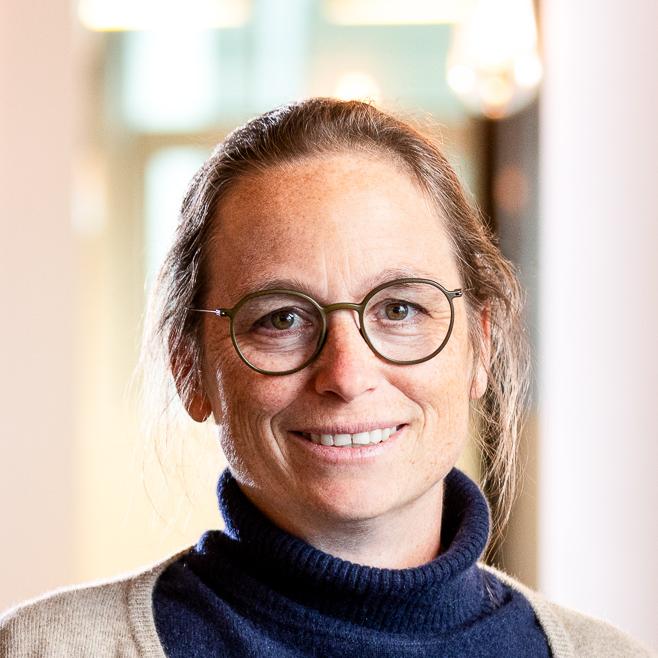
Why am I involved with tomoni?
Oliver and I founded tomoni mental health to support all school stakeholders, i.e., teachers, counsellors and staff, and parents, affected children and adolescents and those around them, in identifying and dealing with mental illness.
What do I do at tomoni?
Along with Oliver, I am responsible for tomoni’s strategic development; I promote our team’s potential and develop programs for educators, young people, and parents. In addition, I manage tomoni’s public relations as well as its social and political engagement.
What does tomoni mean to me?
To me, tomoni means that, together, we do everything we can to ensure that the topic of mental health receives the social support necessary. Children and young people affected by mental illness and those close to them should not have to suffer stigmatization any longer. With tomoni, we want to make our contribution so that all young people can lead a happy and self-determined life.
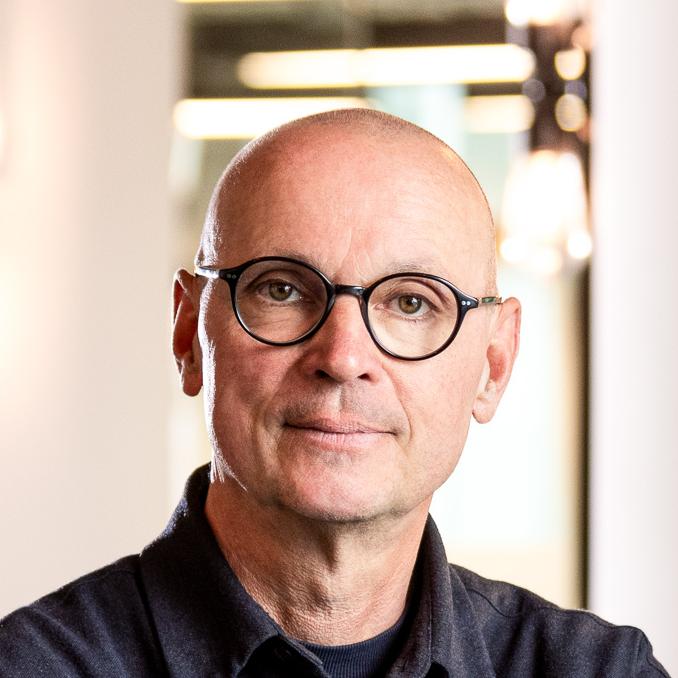
Why am I involved with tomoni?
Alix and I founded tomoni mental health to support children and youth in living a life they feel is worth living, one that lets them realize their full potential and take advantage of opportunities. We don’t want undiagnosed mental conditions to stand in their way.
What do I do at tomoni?
Together with Alix, I am responsible for tomoni’s strategic development, tapping our team’s potential, establishing partnerships, branding, and funding our non-profit social enterprise.
What does tomoni mean to me?
tomoni means to me exactly what it means in Japanese: ‘together’. Together with the wonderful and special people at tomoni, I am passionate about empowering children and adolescents affected by mental conditions to find help for themselves and thus for those around them too as early as possible.
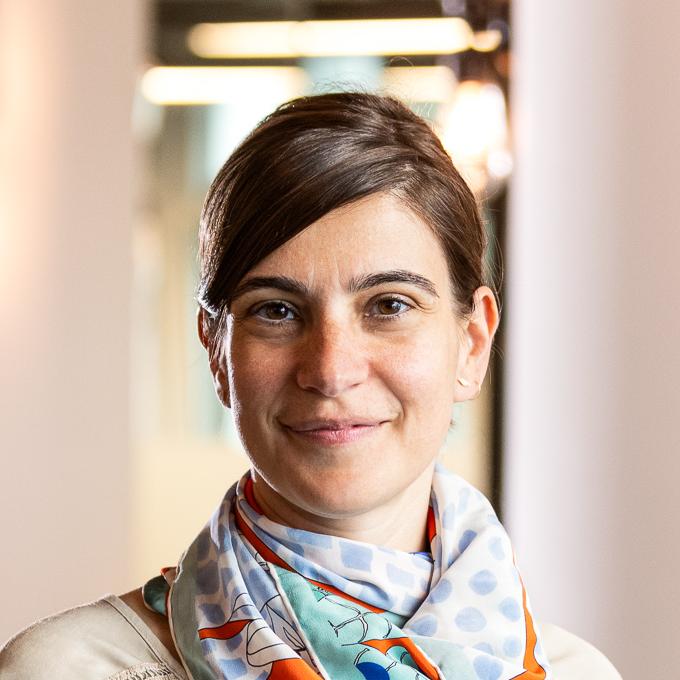
Why am I involved with tomoni?
I would like to do my part to ensure that affected individuals receive greater support more quickly. Symptoms of mental illness should no longer be trivialized – society should finally acknowledge them. Particularly children and young people who are affected need our special protection.
What do I do at tomoni?
As Chief Operating Officer, I coordinate and manage the work processes at tomoni. This includes development and technical implementation of teacher training. I am also involved in networking and tomoni’s social and community engagement.
What does tomoni mean to me?
To me, tomoni means change, because we absolutely need change in the way society deals with mental illness. Only in this way can affected children and young people get help at an early stage. No one should feel they are alone.
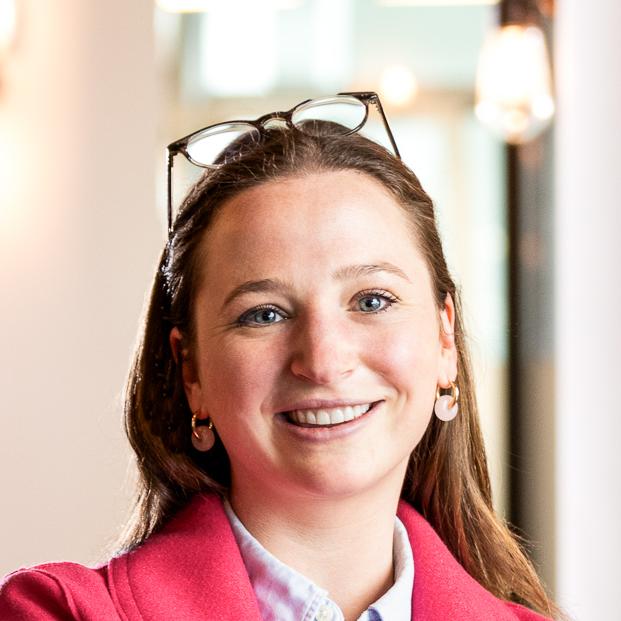
Why am I involved with tomoni?
As a psychologist, early detection and prevention of mental illness, especially in adolescents, is a matter close to my heart. The prevention of mental illness creates a healthier and more resilient society.
What do I do at tomoni?
At tomoni, I am a spokesperson for issues related to mental illnesses, and I create and deliver the mental health trainings.
What does tomoni mean to me?
To me, tomoni means being able to be part of the process of destigmatizing mental illnesses. This would create a more just, compassionate and respectful society where mental illnesses are seen as a normal part of the human experience.
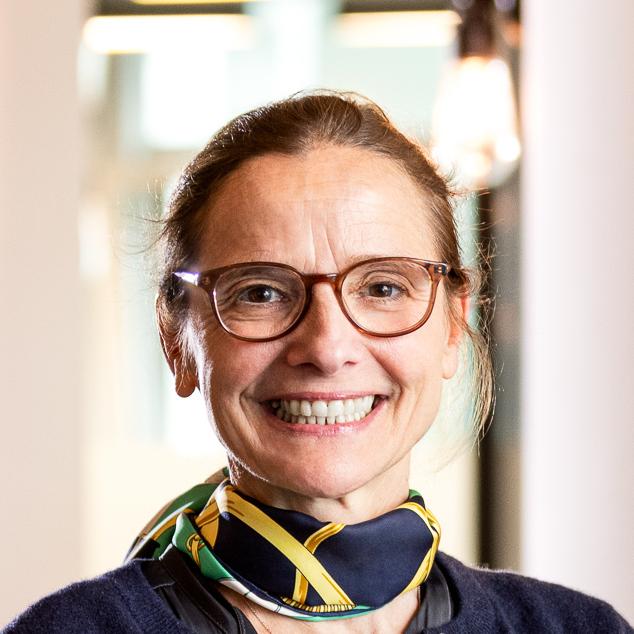
Why am I involved with tomoni?
During my many years of professional life, I have often asked myself how I can use my work in a meaningful manner. With my work at tomoni, I am in a working environment that corresponds to this idea in a wonderful way. I consider non-profit organizations and foundations to be socially indispensable and meaningful, and I have a great affinity with tomoni's goals.
What do I do at tomoni?
In addition to organizational tasks, I assist with networking with organizations and companies as well as applications for grants, collaborations, and awards.
What does tomoni mean to me?
As a mother of three now adult children, protecting and nurturing children and adolescents were and are special concerns of mine. I know from my own experience how important it is to detect and treat mental and psychological problems as early as possible.
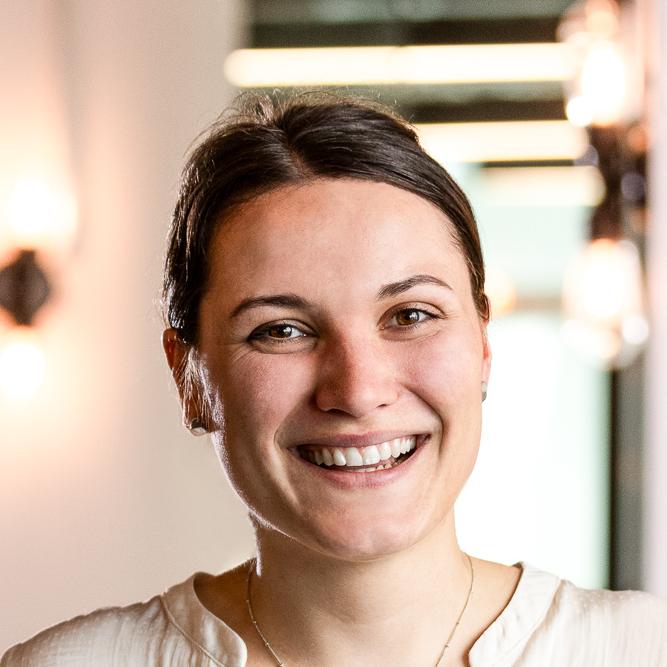
Why am I involved with tomoni?
I chose tomoni because I am particularly impressed by the vision of educating teachers and inspiring them to think for themselves. Based on my experiences from school, I recognise the importance of such initiatives and am motivated to be part of this positive change now. With my upcoming degree in Psychology, specialising in Clinical Psychology and Psychotherapy, I feel tomoni is the right place for me.
What do I do at tomoni?
At tomoni I am partly responsible for technical support. I am also planning to hold tomoni.schools training courses in the future. I contribute my skills in digitalisation and my expertise in psychology.
What does tomoni mean to me?
tomoni offers me a unique opportunity to make a significant contribution to promoting the well-being of children and young people. Here I can utilise my skills and experience in a diverse and dynamic environment that is very important to me personally. It is fascinating to be part of a growing organisation dedicated to raising awareness about mental health - an experience that enriches me enormously both professionally and personally.
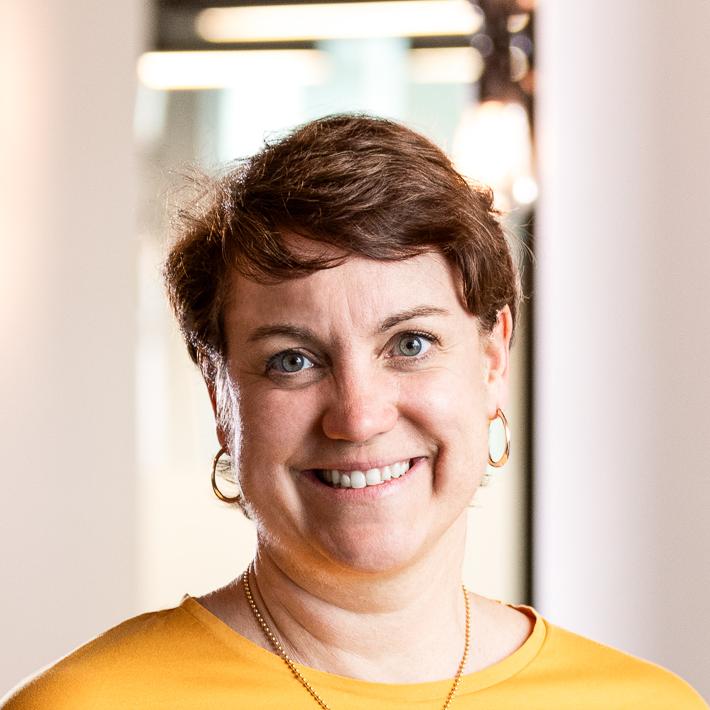
Why am I involved with tomoni?
For me, tomoni is a chance to be part of something new and to improve the life quality of children and young adults, by means of a more attentive social environment.
What do I do at tomoni?
Together with the team, I come up with strategic concepts to guide tomoni into its numerous future endeavours and I also take on specific projects from draft to realisation.
What does tomoni mean to me?
tomoni is an inspiring young company, where I can learn a lot and also apply the skills I have. The altruistic vision, to create a better tomorrow for children, is a source of motivation to me.
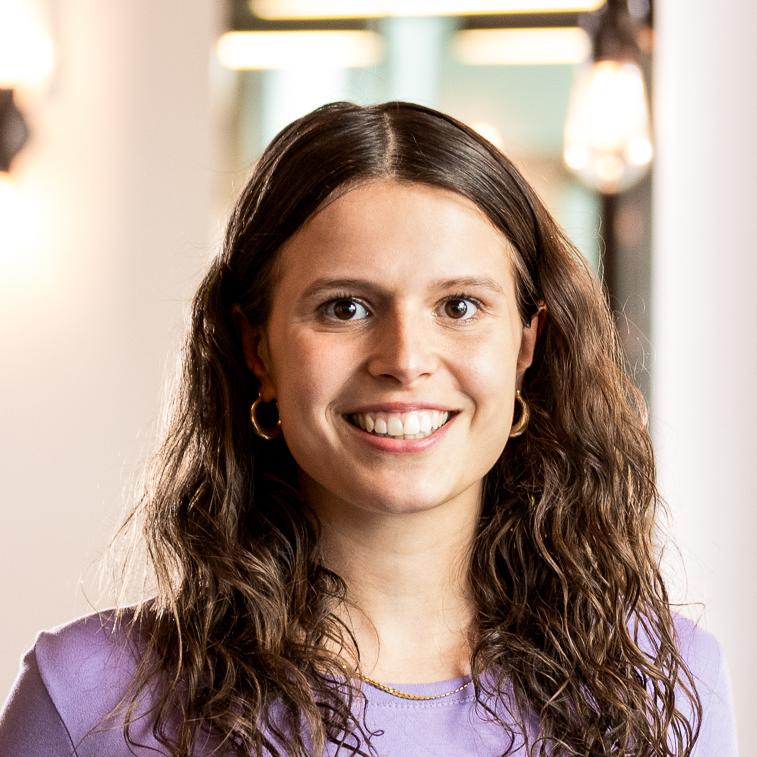
Why am I involved with tomoni?
I have always been involved with mental health on an individual and design level. tomoni is an opportunity for me to use my skills in social communication design and illustration to contribute to something great.
What do I do at tomoni?
As a Social Design Expert, I am responsible for the design of tomoni.
What does tomoni mean to me?
To me, tomoni means shaping my social environment and being part of change that is urgently needed.
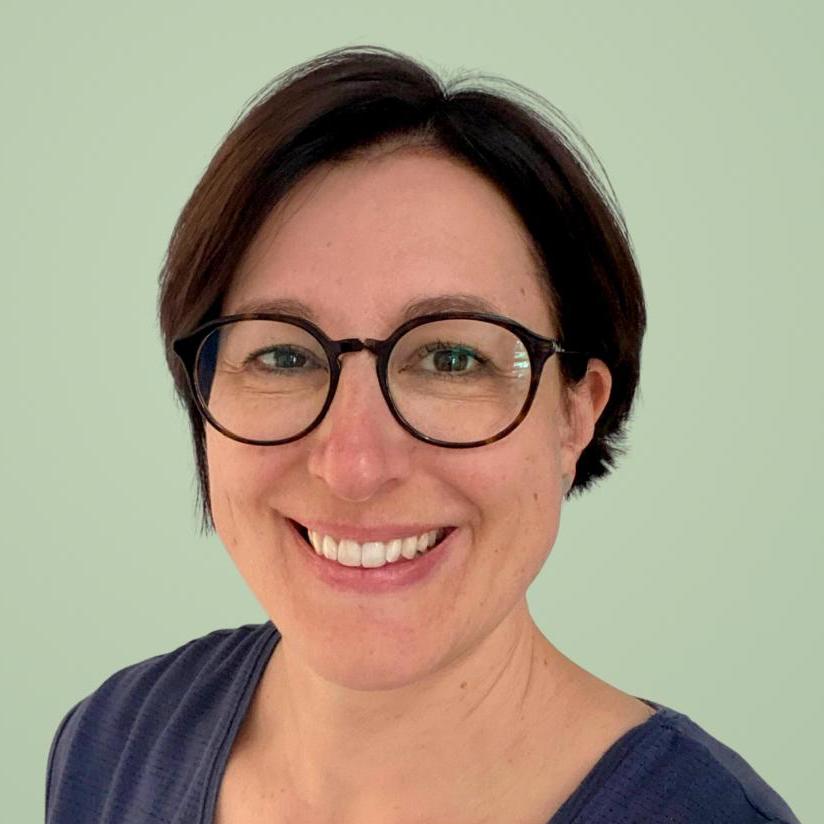
Why am I involved with tomoni?
I am at tomoni because I would like to contribute my knowledge and experience as a specialist in psychiatry and psychotherapy not only to the treatment, but also to the prevention and early detection of mental illness.
What do I do at tomoni?
I support tomoni with professional questions and ensure the maintenance of resillience in our team. In doing so, I work in a solution-oriented manner and always at eye level.
What does tomoni mean to me?
personally: an enrichment
professionally: focus on resources instead of deficits
socially: pioneering work in the field of mental health

Why am I involved with tomoni?
I think tomoni's approach of sensitizing the entire environment is very important. Because if everyone around children and young people is educated about mental health, they can get the right help at a very early age.
What do I do at tomoni?
As content creator and mediator, I create the information services we offer, so that everybody understands how having a mental illness feels like. This puts me in close contact with those affected. Additionally, I am the contact person for the game.changer.
What does tomoni mean to me?
It means that not only psychologists are responsible for the mental health of children and adolescents. Mental illnesses are not character flaws. They are serious illnesses, which means those affected need help as soon possible.
Who we work with
Under the leadership of Prof. Dr. Andreas Reif, the scientific advisory board, consisting of seven members, advises tomoni mental health. It ensures that we take the latest research findings into account in our work. With its member expertise in adult as well as child and adolescent psychiatry, this board supports and advises the company on the conceptualization, realization, and evaluation of further education offerings for teachers, our digital safe space for young people and our offering for parents.

Why are you involved?
Especially, as a psychiatrist for adults, I see the need for prevention in adolescence.
Career
Director and W3 professor of psychiatry and psychotherapy at Karl Jaspers Klinikum, Medical Campus University of Oldenburg, from 2014 to 2017; 2011-2014 Managing Senior Physician at the Department of Psychiatry and Psychotherapy, University of Freiburg (prior to that senior physician from 2006). Second (Habilitation) thesis entitled “On the etiology, clinical manifestations, and treatment of attention-deficit/hyperactivity disorder in adulthood” in 2009, Freiburg; PhD thesis “Botulinum toxin type A as a new therapeutic option in neuropediatrics”, Freiburg, 1999. Behavioral therapy supervisor (Freiburger Ausbildungsinstitut für Verhaltenstherapie GmbH at the University of Freiburg – FAVT).
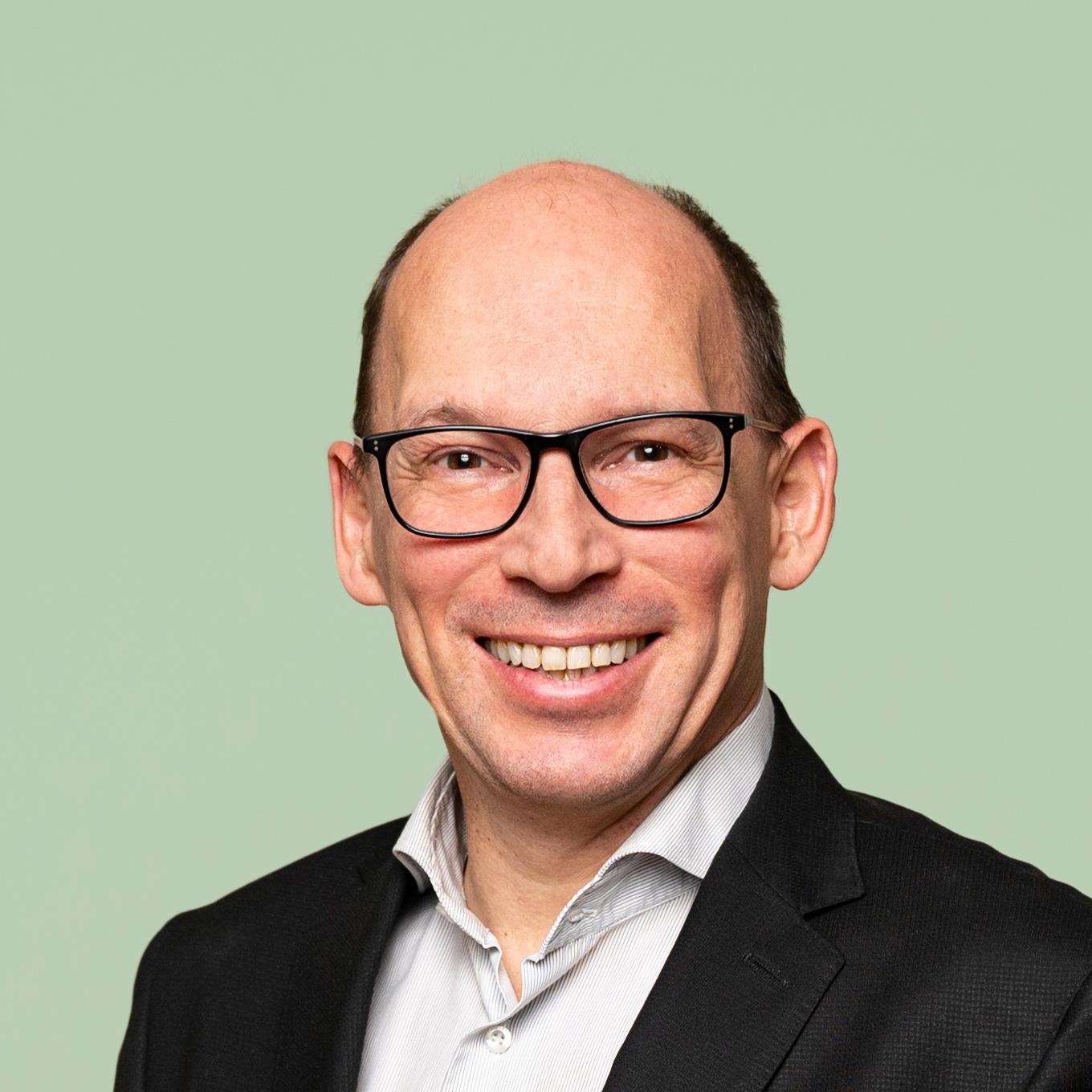
Why are you involved?
The foundation for mental health is laid in childhood and adolescence. Unfortunately, helping young people and those close to them is often neglected. This makes tomoni's work and its underlying commitment that much more important.
Career
He previously held positions as Vice Chair and W2 professor of psychiatry at the University Hospital of Würzburg, where he studied medicine, completed his residency and earned his doctorate at the Institute of Pharmacology and Toxicology from 1993 to 2000. Prof. Reif is on the steering committees for German NVL guidelines on depression, ADHD and suicidal behavior and is a member of numerous professional societies such as the German-speaking interdisciplinary professional society for neuro/psychopharmacological research and its application in therapy AGNP and Collegium Internationale Neuropsychopharmacologicum (Cinp). He is also a board member of the German Society for Bipolar Disorders (DGBS), the German Society for Psychiatry and Psychotherapy, Psychosomatics and Neurology (DGPPN) and the European College for Neuropsychopharmacology (ECNP). He is also a member of the German Depression Aid Foundation Advisory Board. He has been co-editor of the German-language journal Psychopharmakotherapie (PPT) since 2021.
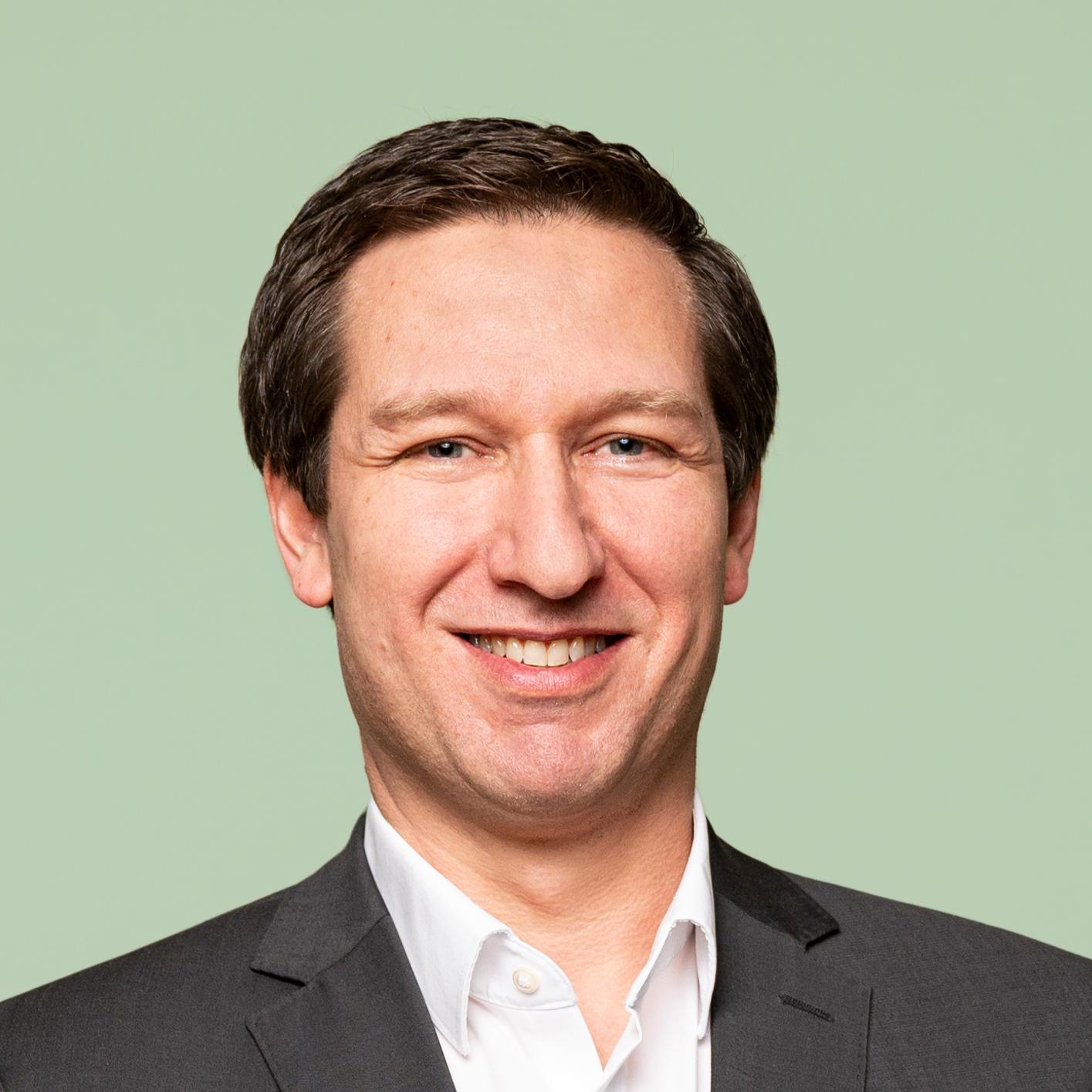
Why are you involved?
Children and adolescents suffer different types of stress than adults. They have to take many important developmental steps, with hurdles presenting themselves time and again, which they may fail to pass at school, among their peers or in their family. This often results in psychological stress or illness. There are effective treatment options for many mental disorders. But the essential task for the future is to develop effective and easily disseminated prevention programs that boost children’s resilience and prevent mental disorders from developing in the first place. These are the reasons I support the tomoni initiative and place a particular focus on ensuring that the programs developed are scientifically evaluated.
Career
Univ.-Prof. Dr. med. Marcel Romanos has, since 2012, been Head of Child and Adolescent Psychiatry, Department of Child and Adolescent Psychiatry, Psychosomatics and Psychotherapy of the University Hospital of Würzburg, as well as Director of the Day Clinic for Child and Adolescent Psychiatry, Psychosomatics and Psychotherapy, Diakonie Würzburg e.V. and Director of Klinik am Greinberg, Special Clinic for Child and Adolescent Psychiatry, Psychosomatics and Psychotherapy, Lower Franconia District. His areas of expertise include attention deficit hyperactivity disorder, autism and obsessive-compulsive disorders, and anxiety disorders.
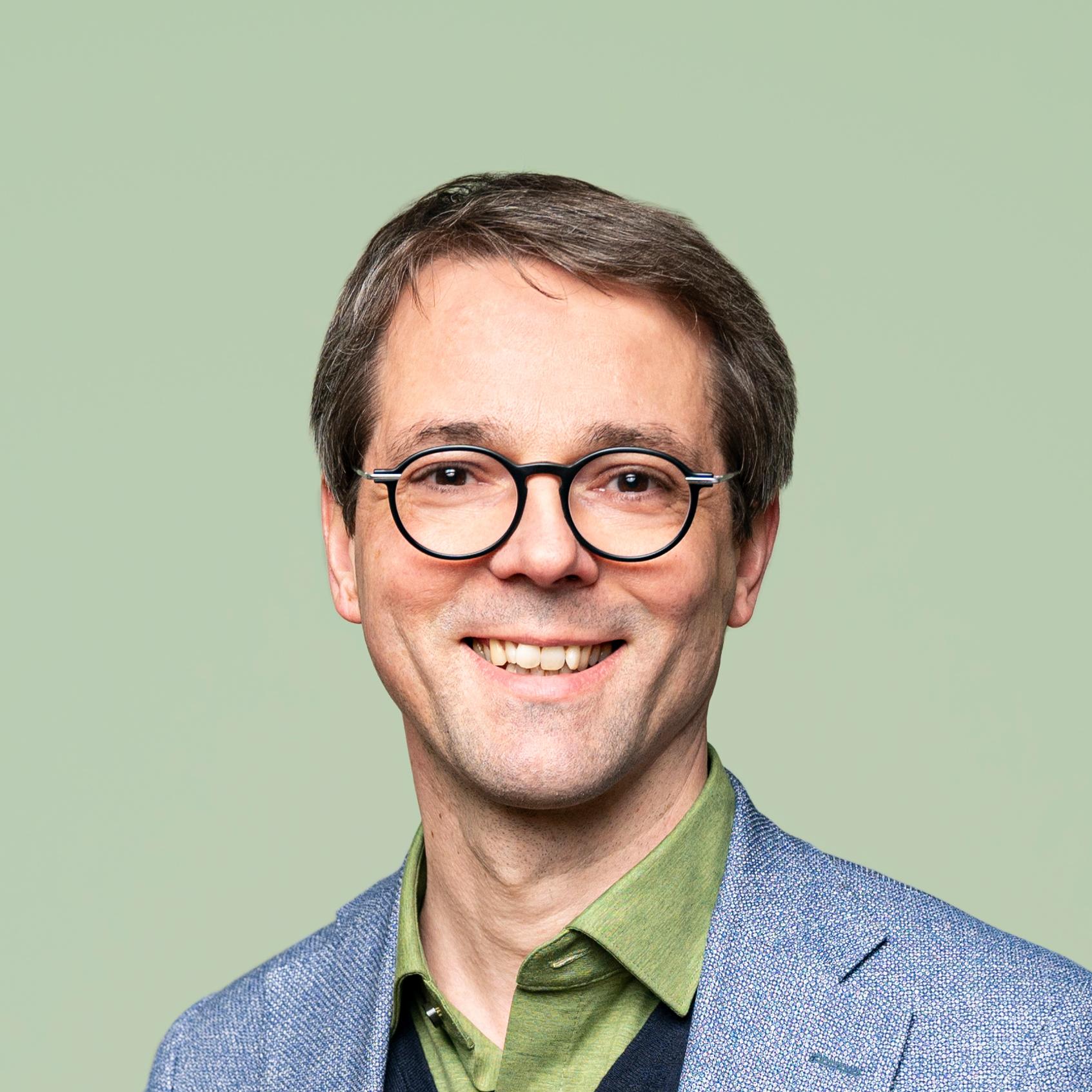
Why are you involved?
Mental conditions are common and can affect anyone. I would like to help provide information and offer guidance to children and adolescents and all those involved with them.
Career
Born in 1970 and attended school in Münster; studied medicine and Catholic theology in Münster, Würzburg, and Padua, Italy. He has served since 2010 as Medical Director, Chair of Child & Adolescent Psychiatry and Psychotherapy, LWL-University Hospital Hamm for Child and Adolescent Psychiatry, Ruhr-University Bochum (RUB) – one of the largest child psychiatry clinics in Germany, professor of child and adolescent psychiatry at the RUB School of Medicine.
His research interests include clinical manifestations, progression and therapy of affective disorders and the therapy of ADHD. Prof. Holtmann is managing editor of the journal for child and adolescent psychiatry Zeitschrift für Kinder- und Jugendpsychiatrie und Psychotherapie put out by Deutsche Gesellschaft für Kinder- und Jugendpsychiatrie, Psychosomatik und Psychotherapie e.V. (DGKJP). He is also a member of the Addiction Commission of the German Child and Youth Psychiatric Federations and Scientific Societies (Suchtkommission der deutschen kinder- und jugendpsychiatrischen Verbände und wissenschaftlichen Fachgesellschaften).
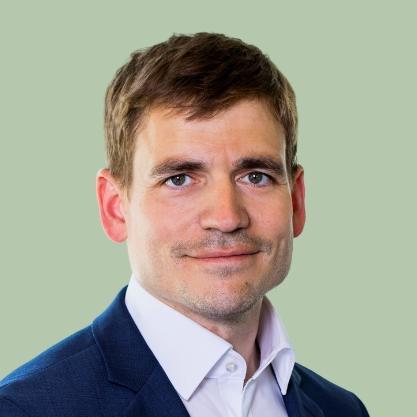
Why are you involved?
We now know a lot about suicide prevention and yet it is often difficult to spread this knowledge and take action. tomoni offers an important initiative in this regard and has the desire to effect change. Here science can help shape practice.
Career
Univ.-Prof. Dr. Paul Plener, MHBA is Head of the Department of Child and Adolescent Psychiatry Medical University of Vienna / University Hospital Vienna. He is a doctor specialized in child and adolescent psychiatry and psychotherapeutic medicine. Paul Plener is president elect of the Austrian Society for Child and Adolescent Psychiatry, Psychosomatics and Psychotherapy and member of the expert panel of the Austrian National Suicide Prevention Program (SUPRA).
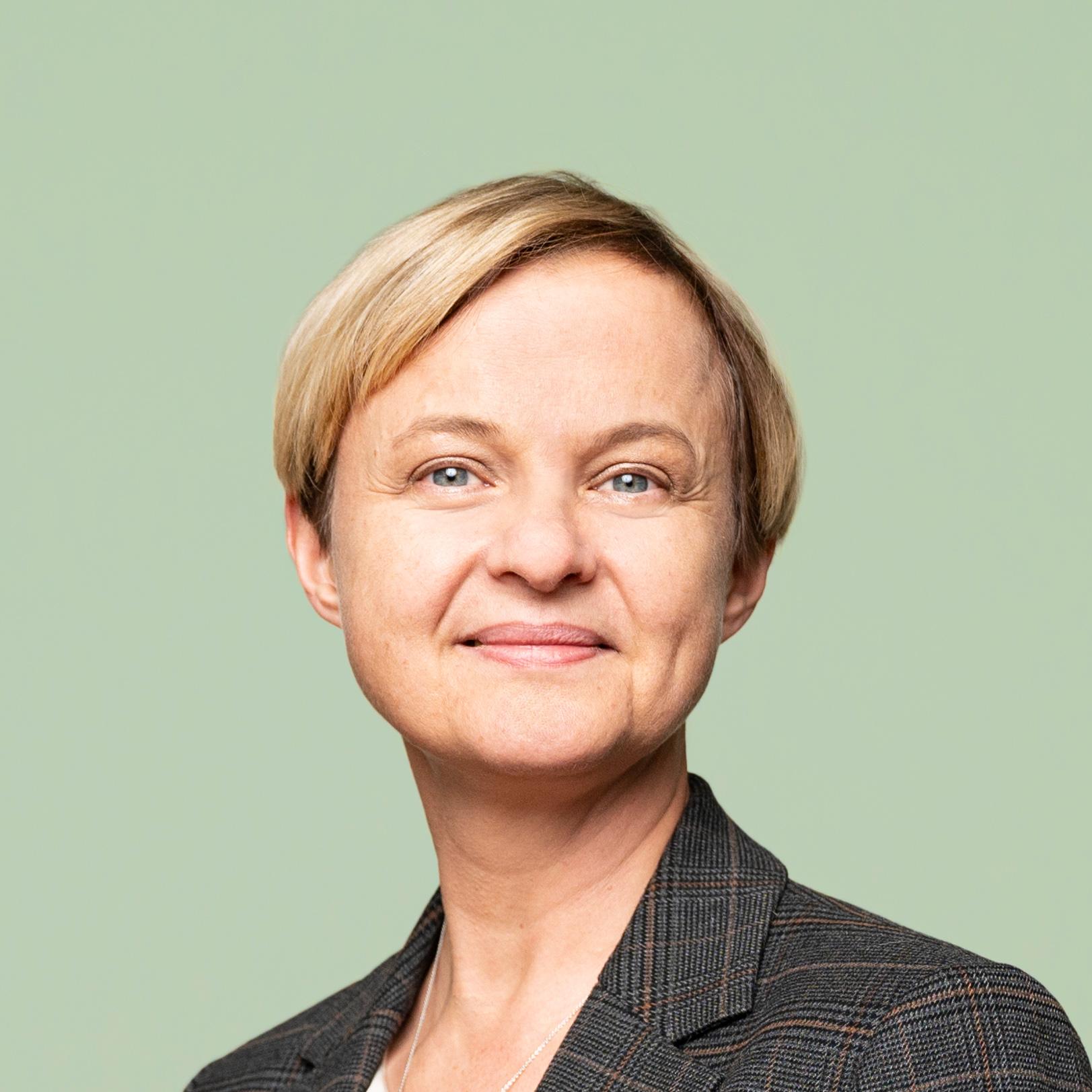
Why do I support tomoni?
I want to empower children and young people to maintain their mental health, and help them understand when they need to get help and how to build the trust necessary to do so. Suicide prevention at any age should be as much a given as addiction prevention.
Career
Since 2014 I am leading the workgroup for suicide research as well as the private outpatient department at the clinic and polyclinic of psychiatry and psychotherapy at the University Hospital Dresden.
Members of the educational advisory board represent all types of schools. The board includes experienced teachers and those just starting their careers, specialist teachers as well as those with school management responsibilities and teachers elected as liaisons. Two school social workers are also board members.
Together, the advisory board members have consulted tomoni from the beginning, applying their expertise and school insider perspective to give the advice and impetus from school life that are needed. tomoni ensures by such means that the digital training offering is designed and can be further developed in line with the professional reality and constraints of school stakeholders. Important content is prioritized and details added based on actual case studies.
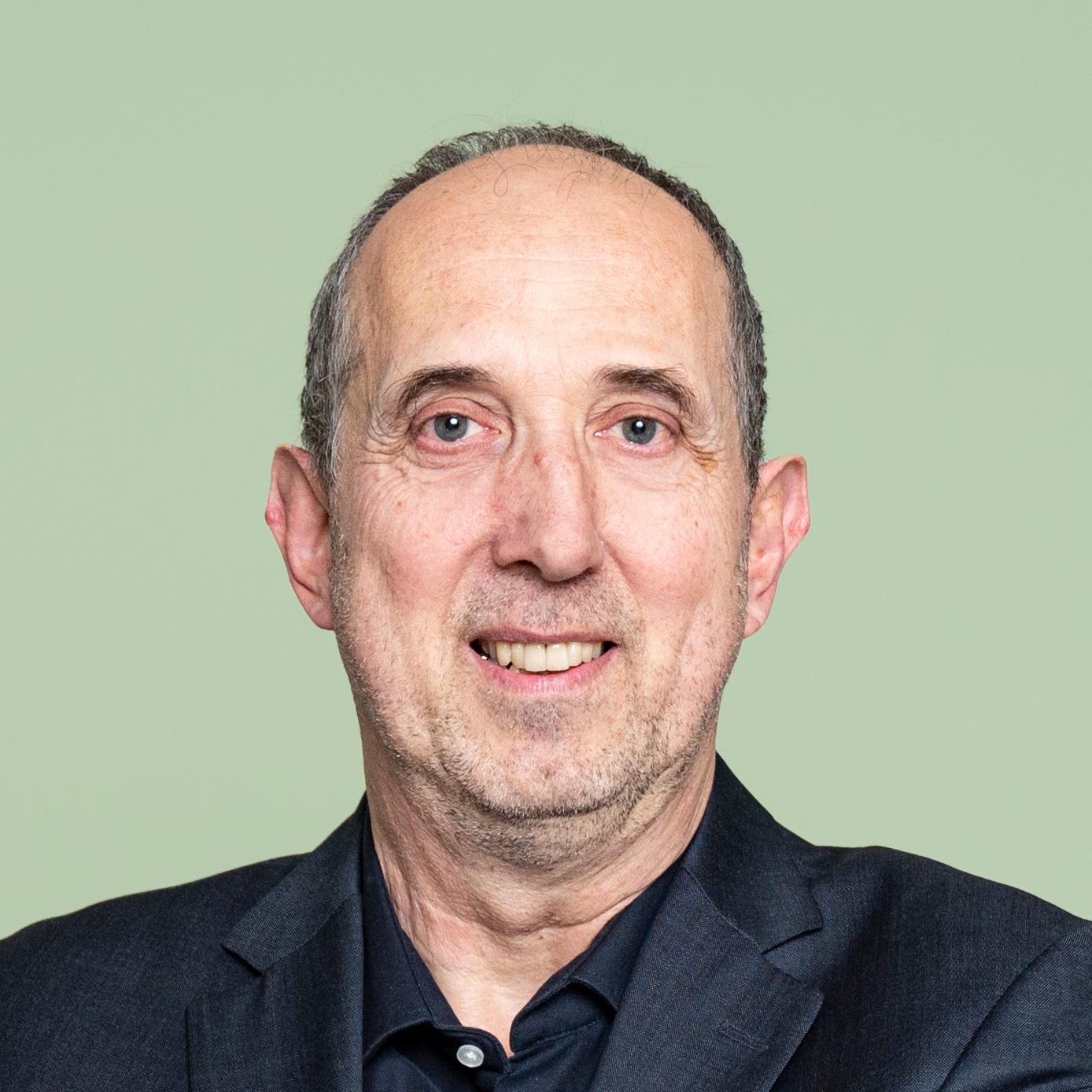
Benedikt Gehrling has been the principal at Erich Kästner primary school (440 pupils) in Frankfurt-Nordweststadt since 2003 and served as representative of Frankfurt primary schools from 2006 to 2021. He studied elementary education and Catholic religion at the College of Education in Koblenz and Landau from 1983 to 1987.
Why are you involved?
As a father of three children, based on my own experience and not least as a teacher, I have noticed time and again over the years how we are exposed to afflictions at every stage of our lives and are confronted with hardships that can quickly exceed our own ability to cope. When Alix Puhl asked me in April 2022 if I could imagine supporting her work by joining the educational advisory board, I spontaneously said yes. I think it is important to raise awareness of and equip those who work in schools and deal with children for a good part of the day so that they can offer a high level of support to such children and young people on their way to leading an independent life, also in their psycho-emotional development.
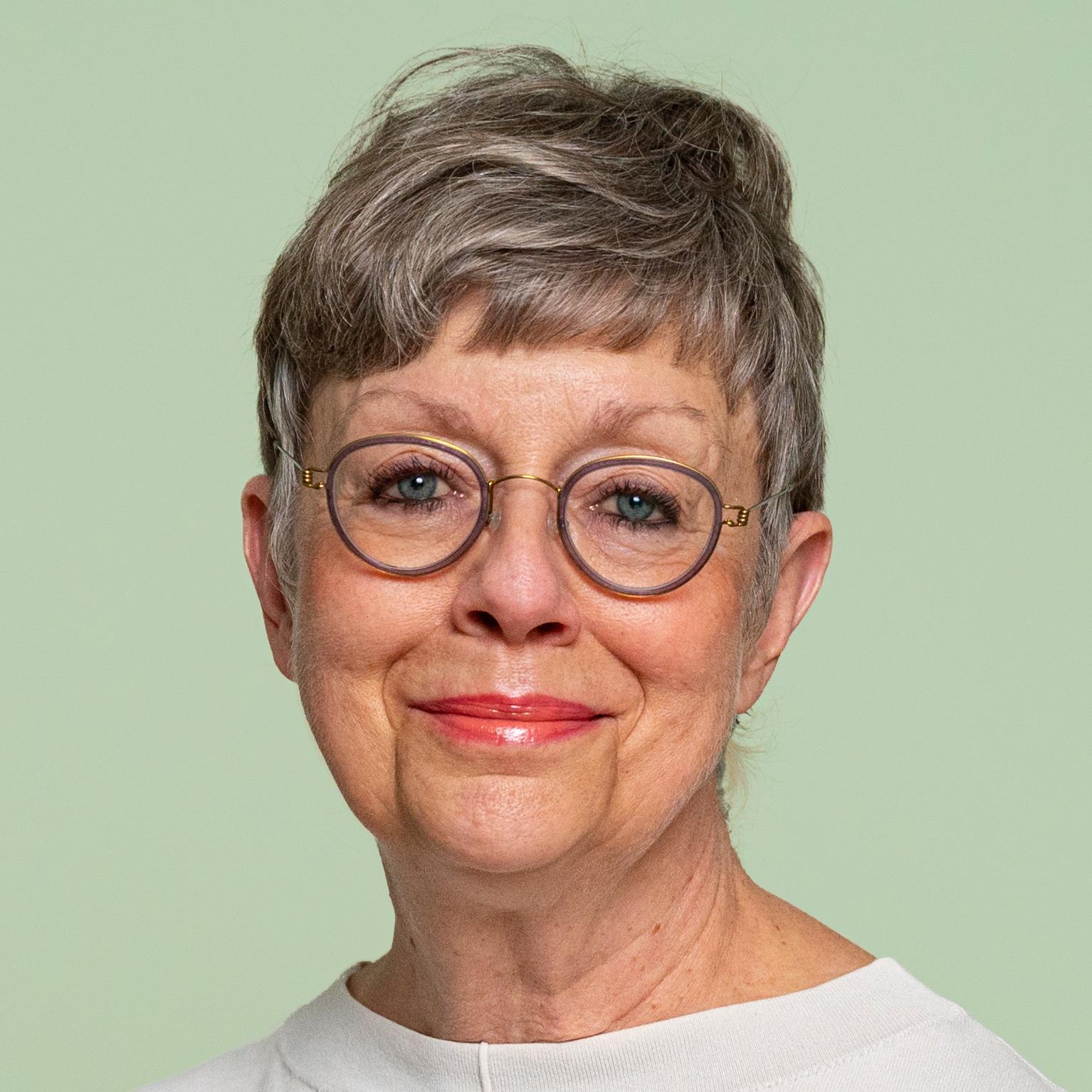
Birgit Vollrath war bis August 2022 Lehrerin und Fachbereichsleiterin am Heinrich-von-Gagern-Gymnasium in Frankfurt am Main.
Warum unterstütze ich tomoni?
Was mich treibt, ist zunächst die Trauer um jedes Kind, das sein Leben nicht als lebenswert empfindet, und gleichzeitig die Scham, als Erwachsener in der wichtigsten Aufgabe und Verantwortung versagt zu haben und immer wieder zu versagen, nämlich dafür zu sorgen, dass unsere Kinder und Schutzbefohlenen nicht nur körperlich, sondern auch seelisch gesund aufwachsen und ein lebenswertes Leben führen können. Versagensängste und das Empfinden von Hilflosigkeit können auch gute Ratgeber sein. Sie können dazu motivieren, nach Aufklärung und Informationen über Anzeichen und Merkmale seelischer Erkrankungen zu suchen, durch diese Kenntnisse Orientierung für die Möglichkeiten und Grenzen des eigenen Handelns zu gewinnen und konkrete Hilfsangebote daraus abzuleiten. Die Initiative von tomoni unterstütze ich vor allem deshalb, weil sie - ausgehend von einer sehr tiefen persönlichen Betroffenheitserfahrung - sich zum Ziel gesetzt hat, allgemein und adressatenbezogen für den Bereich der mentalen Gesundheit von Kindern und Jugendlichen im Schulalter zu sensibilisieren: durch Aufklärung und Hilfe, durch sachliche Informationen und konkrete Unterstützungsangebote, und dadurch einen ebenso wichtigen wie einzigartigen Beitrag zur Suizidprävention leistet.
Was bringe ich mit?
Eine vierzigjährige Erfahrung im Umgang mit Kindern und Jugendlichen in einem Beruf, der aus meiner Sicht zu den besten gehört, die man sich vorstellen kann, weil er einen Bildungs- und Erziehungsauftrag zu erfüllen hat, das heißt Kindern und Jugendlichen dabei helfen soll, im umfassendsten Sinn lebensfähig zu werden, und dadurch einen ebenso wichtigen wie einzigartigen Beitrag zur Suizidprävention leistet.
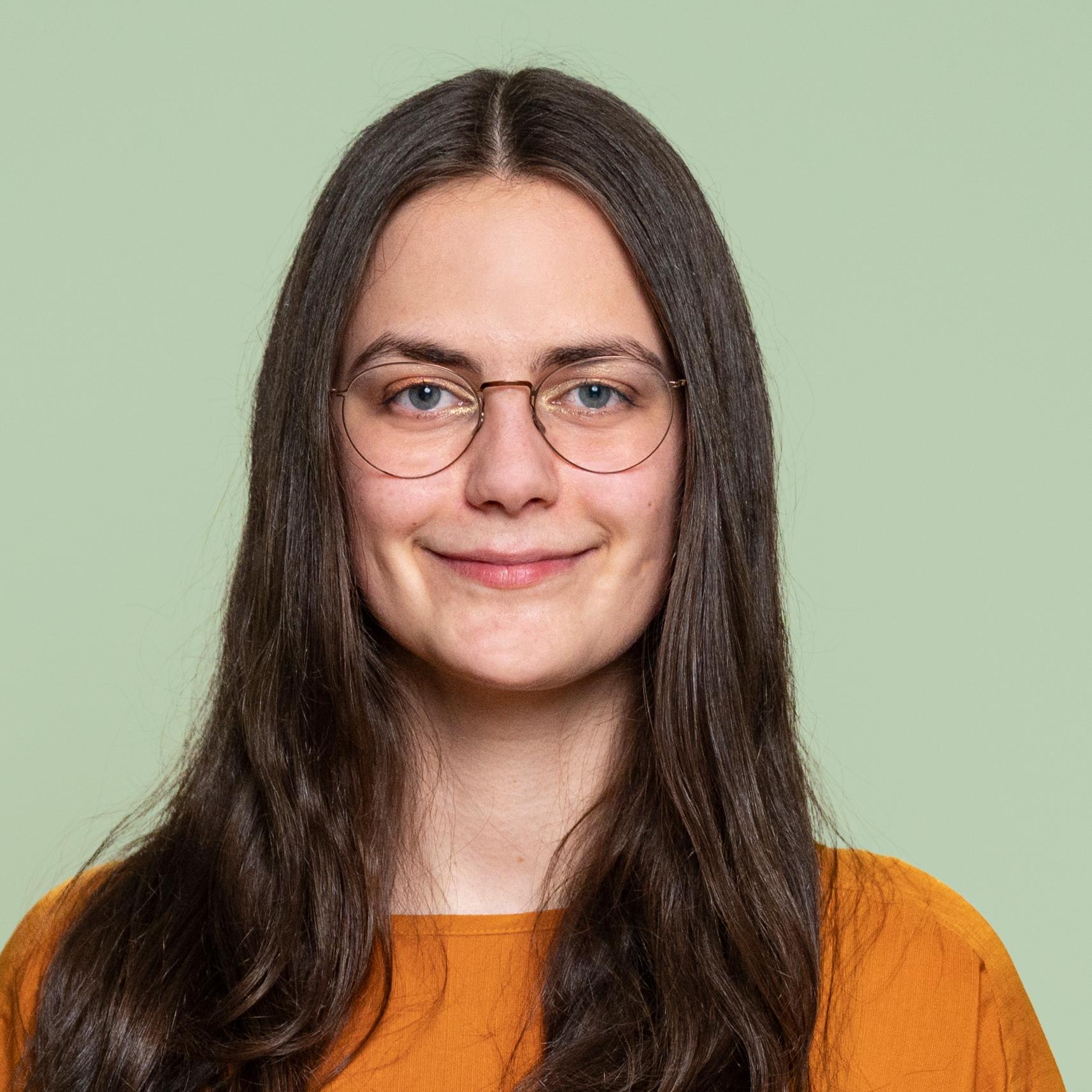
Hanna Volgmann ist Studentin an der HfMdK und der Goethe-Universität in Frankfurt. Seit 2018 studiert sie Lehramt an Förderschulen mit den Fächern Musik und Politik und Wirtschaft und seit 2019 macht sie ihr Bachelorstudium im Fach Musik.
Was treibt mich an?
In meiner Schulzeit habe ich miterlebt, wie hilflos einige meiner ehemaligen Lehrer*innen reagiert haben, wenn das Thema mentale Gesundheit von Schüler*innen angesprochen wurde. Ich möchte zu der Generation von Lehrer*innen gehören, die zunächst freiwillig und dann curricular in diesem Themenbereich ausgebildet und fortgebildet wird, um mentaler Gesundheit den Raum im Schulkontext zu geben, der ihr gehören sollte.
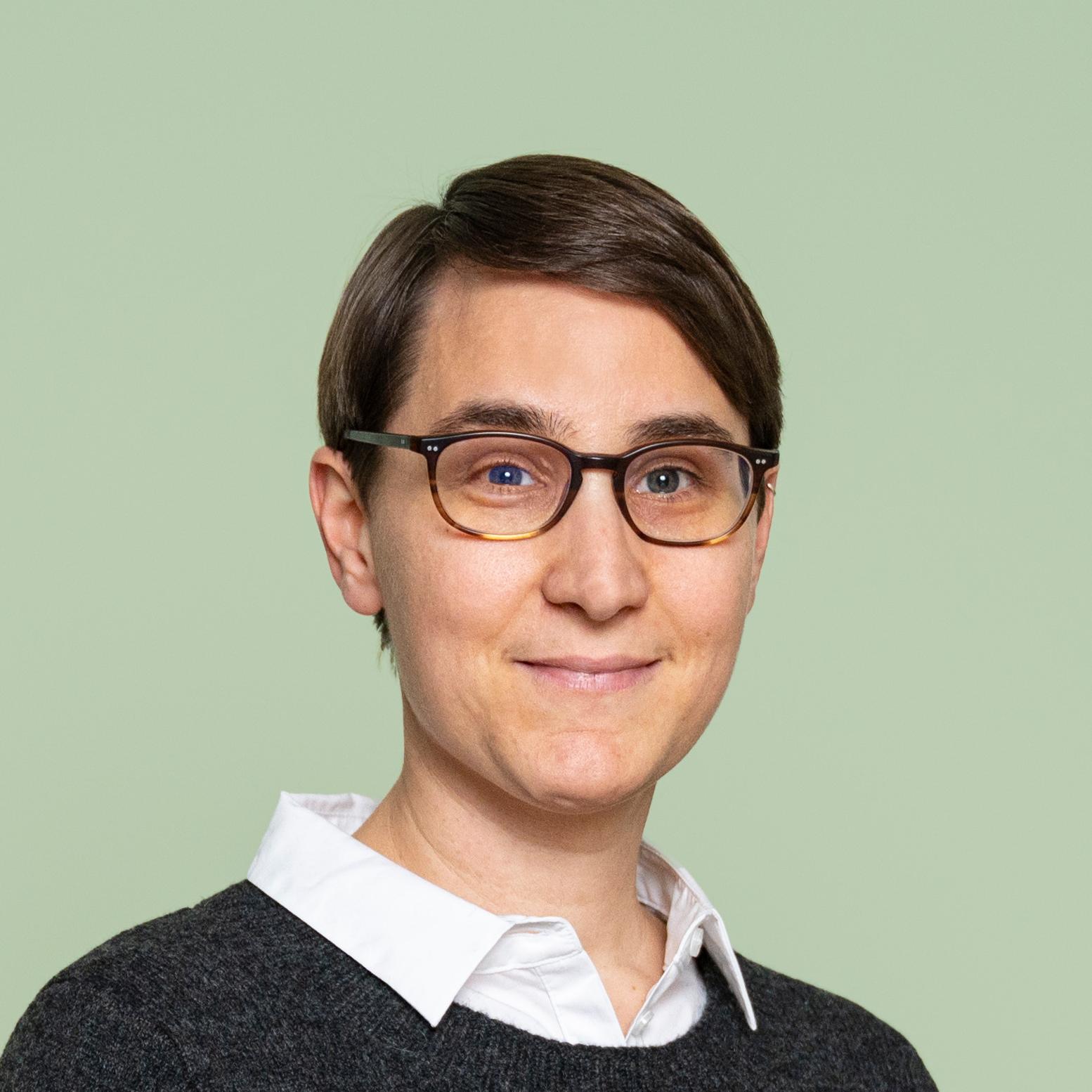
Judith Junk is a teacher at the Max-Planck-Schule in Rüsselsheim, where she heads the steering group for quality management. She is a liaison teacher on the HELP team and in charge of “Bunt-AG” (everything about colors), as well as acting as a liaison teacher for the Rüsselsheim city school council.
What motivates you?
I want to leave this world in a little better state than I found it in. Jesus is the star that lights my way “Inasmuch as ye have done it unto the least of these my brethren, ye have done it unto me” (Matthew 25:40).
What can you contribute?
A lot of unanswered questions and a willingness to work with others to develop ideas on the best way for teachers to acquire the knowledge they need on mental health that will enable them to act.
Why are you involved?
I would like to generate impetus by together naming what is really missing. Creating such impetus would support tomoni mental health in its efforts to further professionalize teachers of all school types through customized training programs. Instilling such professionalism would then serve as the basis for establishing a school culture that looks mental health in the eye and practices good communication.
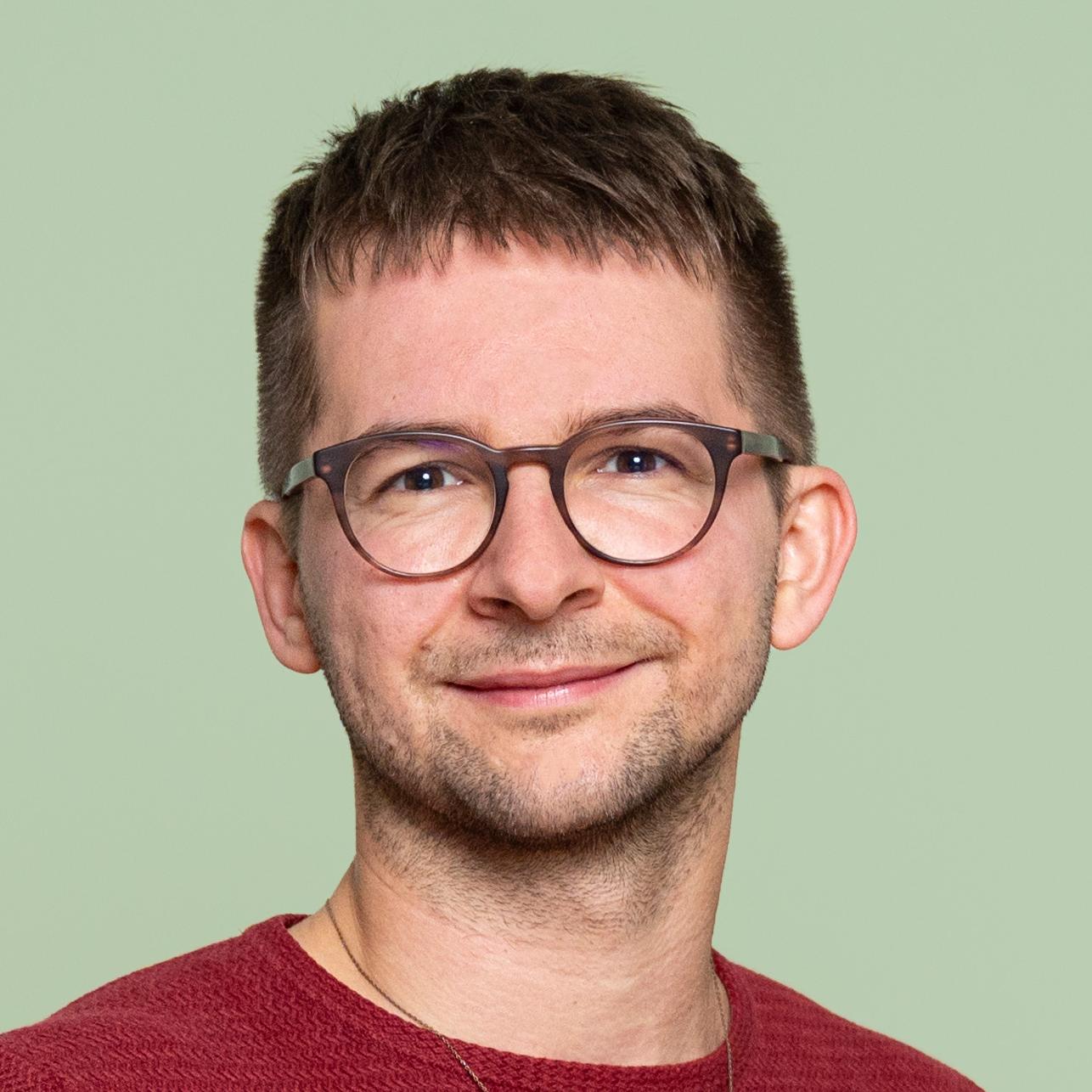
Lukas Keller is a teacher at the Heinrich-von-Gagern-Gymnasium in Frankfurt. He is also a liaison teacher for the student council and a member of the advisory team.
What motivates you? Why are you involved?
My work on the counselling team has shown that oftentimes too much has already occurred (both in and outside of school) by the time children turn to the counselling team. Then it is a lot more difficult to convince them that psychological and/or psychiatric help is necessary. That’s why I think it’s essential for teachers to be empowered to closely observe children in their developmental phase and to be able to better recognize what’s going on with them. This is explicitly not about being in a position to make a diagnosis. A lot of times, it is enough to engage in dialogue, to take the problems (however small they might supposedly be) seriously and then to know to whom one can refer the children.
What can you contribute?
Years of experience working with children (in classroom and counselling environments), various further education courses, motivation, and an open ear.
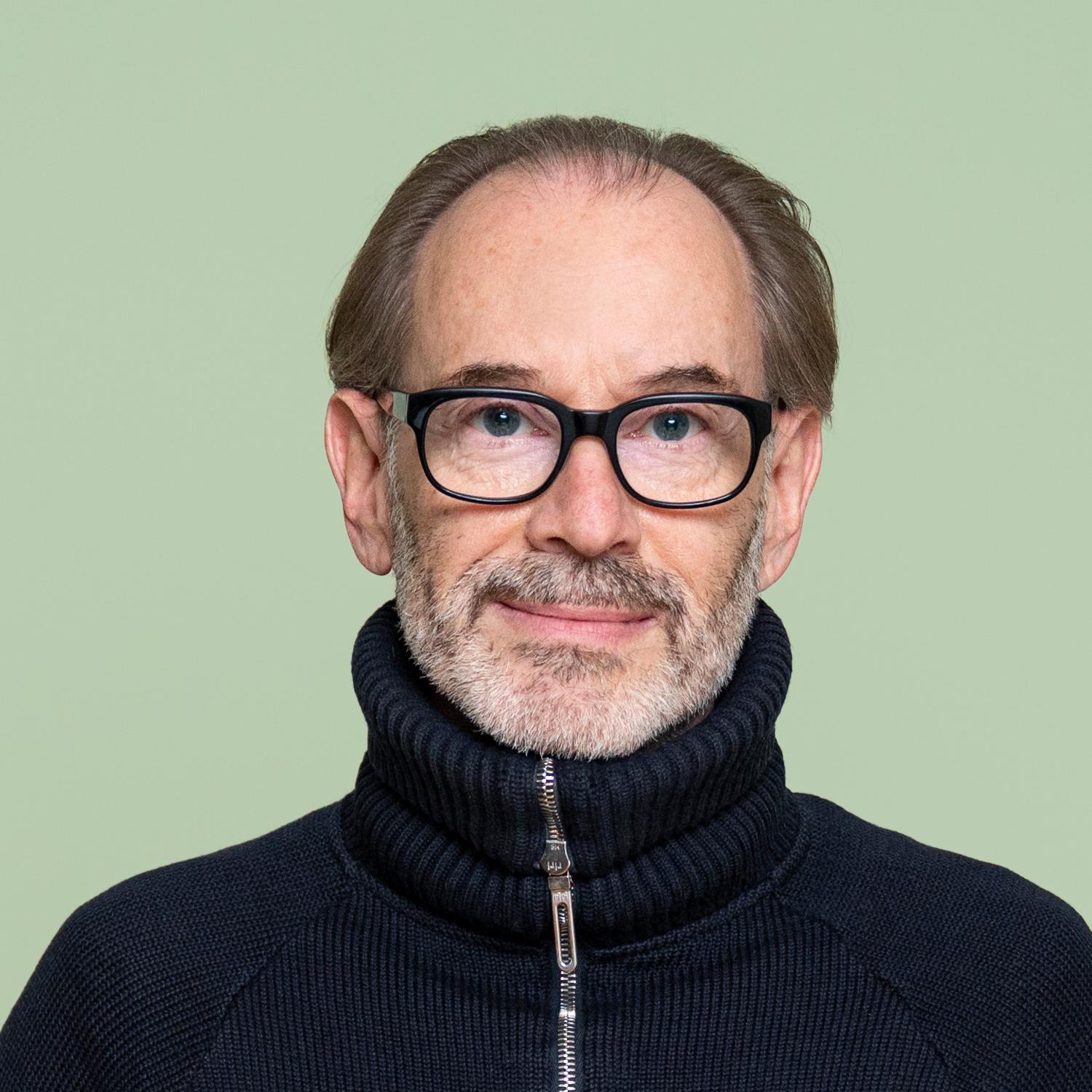
Martin Grün is a special needs teacher with a degree in Education, as well as a specialist consultant for individuals with autism spectrum disorder. He is on the emotional-social development expert team and a member of the regional consulting and support center-east in Frankfurt am Main.
What motivates you?
As a special needs teacher with a focus on emotional-social development, I know that lessons are not always the most important thing in school. I am motivated by the desire to perceive the emotional needs of children and adolescents, to reflect on them pedagogically and to offer the help necessary, accompanied by understanding.
What can you contribute?
Through my work, I am acquainted with all types of schools. I also think I know what makes the school system tick. I enjoy the challenge of finding ways out for students in crisis, and I bring a fair amount of experience and expertise with me to the table.
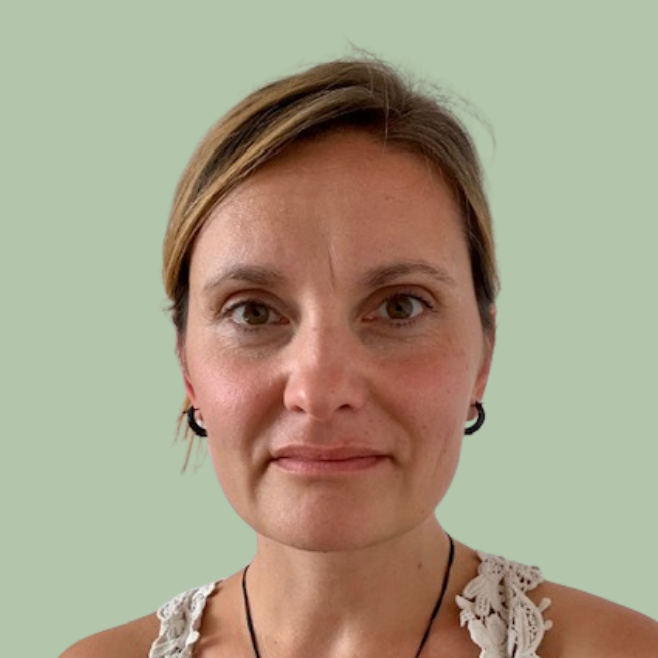
Rositsa Peper-Beranek has been a school social worker at the primary school Karl-Treutel-Grundschule in Kelsterbach since 2017. Prior to that, she worked for several years in organizing and establishing school assistance services at naviduo, a youth welfare organization.
What can you contribute?
I earned a bachelor’s degree in psychology in 2012, then completed a further two years of systemic therapy training to become a counsellor of individuals, couples, and families. I love what I do, even if I sometimes feel that I am reaching my limits when it comes to supporting children on the ground. I can offer an interest in and openness to new encounters and the ability to create impetus.
What motivates you?
I am looking for new means of support that children and parents have not yet discovered.
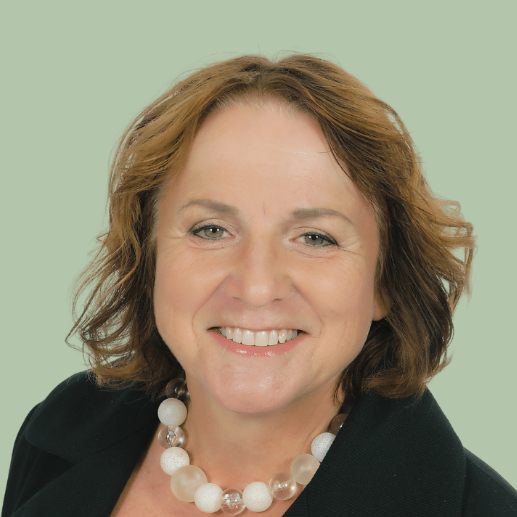
Sabine Fischer teaches English and physical education and is a school principal of a primary, lower secondary and comprehensive school in the west of Frankfurt. She is Frankfurt city councilor for the CDU on the social affairs, mobility and culture and sports committees. She is social policy spokesperson for the Frankfurt am Main Römer CDU parliamentary group.
What motivates you?
Mental illness in childhood and adolescence has increased dramatically. This is also noticeable in school life. Young people in particular have very little knowledge about mental conditions. Those affected often do not seek the help they actually need. The people around them commonly recognize psychosocial warning signs too late and do not act accordingly. There is great helplessness in the face of mental illness.
What can you contribute?
Experience with youth between the ages of 6 and 16 and in dealing with special challenges daily, the ability to act quickly and flexibly. I can offer dialogue on possible solutions and means of support.
Why are you involved?
This is an important topic that has not yet received sufficient public attention. People are only aware of specific cases and react with dismay.
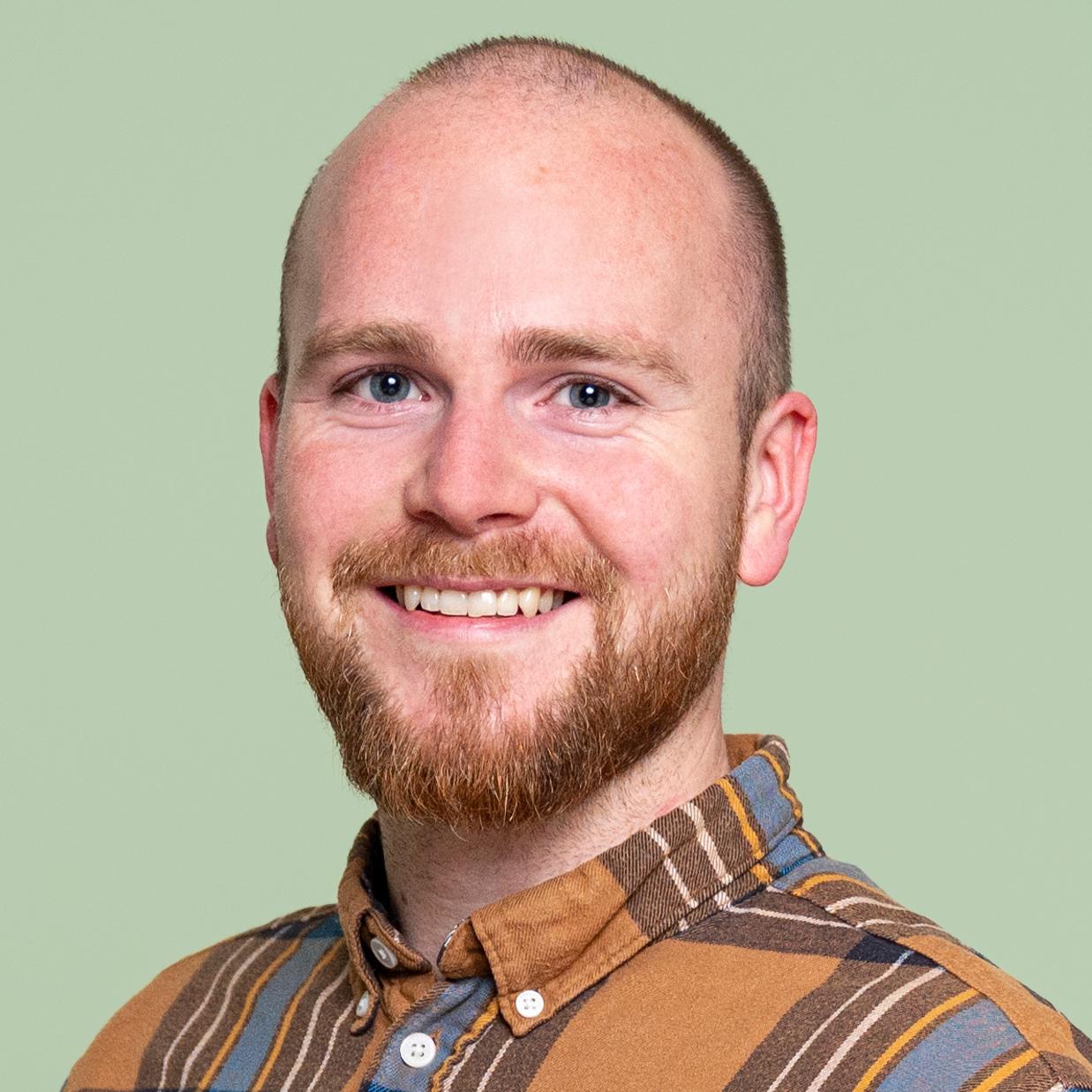
Sebastian Jäger is a social worker and a social pedagogical specialist engaged to support teaching (UBUS) at the Carl-Schurz-Schule in Frankfurt. Prior to that, he was active in open children and youth work and at a semi-stationary institution.
What motivates you?
I am motivated by the fact that the mental health issue is becoming more and more important in my life. I have a lot of contact points – above all through counselling students. But beyond my work, I have the impression that mental health is assuming a greater importance for many people. This is especially true for the last few years. COVID, in my opinion, contributed (even more) to the mental suffering that many people were experiencing. But I also see that the pandemic has created an opportunity for broaching the subject of mental health, creating greater awareness.
Why are you involved?
I regard working at tomoni as a great opportunity. To network with professionals and to intensively work on a project that would not be possible for individuals in this form opens huge opportunities. And what is more, visibility and awareness are being increased – something is in the works that is urgently needed.
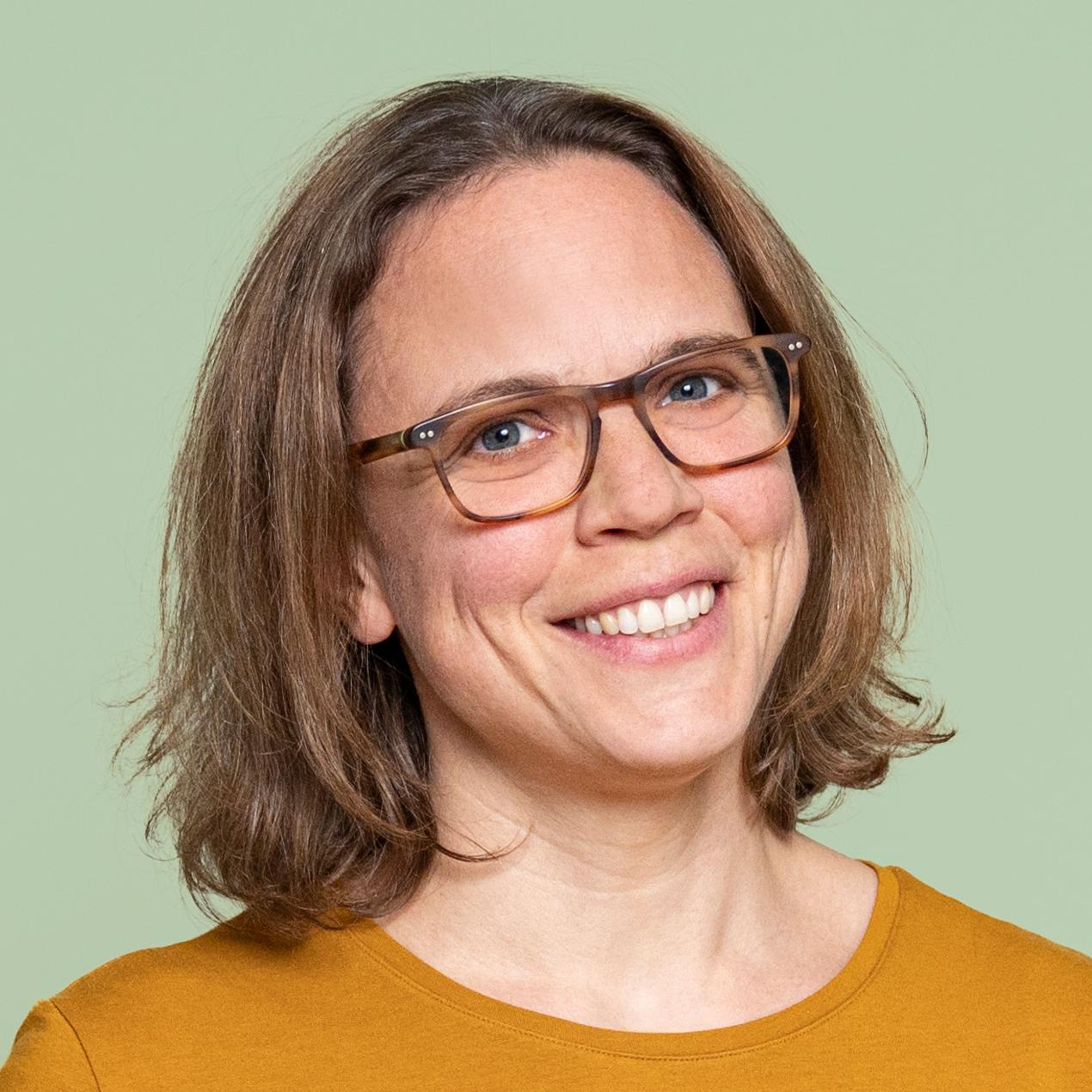
Silke Henningsen is deputy principal with a focus on educational leadership at IGS Süd in Frankfurt, a school newly founded in 2016. She was a member of the planning group and was able to build a school with an innovative concept with a dedicated team. With multiprofessional teams at her schools, she worked on raising awareness among professionals, prevention structures, training, etc.
What motivates you?
Inclusion is a topic dear to my heart. People with mental health issues fall through the cracks all too often. I find that hard to bear and would like to do my bit in developing a solution.
What can you contribute?
At my last school, I introduced the first counselling team in Frankfurt. Through this multidisciplinary team approach, I had a lot of contact with students and case consultations involving mental conditions. This teamwork enabled us to become more professional together and I learned that opportunities to do something abound!
Why are you involved?
Many things only become good when the right people come together. I had this experience with Alix Puhl in the planning group to set up a school, and every day I see the result of those efforts with satisfaction. I would like to do my part once again to create something together which is sure to be good.
The game.changer are a diverse group of committed youth and young adults, some of whom are affected themselves. From the very beginning, they have given tomoni mental health key advice and provided impetus in the conception, realization, and further development of the digital safe space by sharing their experiences, ideas, and feedback. They identify the topics that are important to them and thus also support the development of the offerings for teachers and parents.